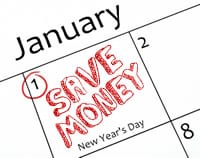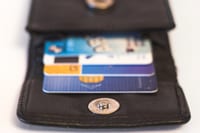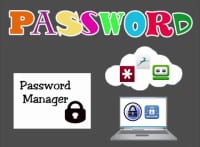Each year there are several things I do in January to make a fresh start of our finances for myself and my family.
I take the credit cards out of my wallet and put them in my copy machine. Why do I do this? So, I’ll have up-to-date information on my cards in case my wallet and/or phone is lost or stolen. If you want to do this, too, make sure to spread your cards out on the paper so you’ll have room to hand-write the contact phone numbers found on the back of the cards. This serves a few purposes:
- You won’t have to go online or search past bills for contact numbers in case you need to cancel those cards in a hurry.
- You will know exactly which cards you need to call on, and,
- You’ll remember to take the credit cards off the copier.
I set a new file for 2021. This includes my accordion multi-pocket folder for this years’ tax information. If I am organized at the start of the year, I will be all set for the accountant at year end. For last year, I am ready to give our accountant all the tax information so that I can file early. (This is a good idea to file early, just in case someone steals your identity and files a false return).
I shred our pay stubs when the W-2’s come in. Check to make sure they agree first! (Yes, there are still companies that use paper pay stubs)
We review last year’s bills. We really like to save money on everyday expenses so we can afford the things we really enjoy. So, we look at how we’ve spent our money in the past year to see if we can make any improvements. In the past, we have deregulated our electric, lowered our cell phone package, and cut out TV channels we don’t watch. We have made choices about what subscriptions to keep and what not to renew, keeping only the most useful magazines and memberships.
January is a month we plan our extra spending. These are the expenses that aren’t in the usual monthly budget but are essential to our standard of living. If you want to plan your extra spending, here are some examples and tips:
- What do you want to do this year for fun? We usually already have a vacation or two in mind.
- What big events are taking place for your family or circle of friends? You usually know a year in advance if someone is planning a family reunion or getting married. Be sure to factor in travel costs.
- What home projects do you need or want? With this past year’s weather, you may be thinking its time for that major improvement to your home. Last year, we replaced our roof.
If you need to spend money to have it, then it’s worth planning ahead. It’s so much easier and less stressful to have the money saved than to try to figure out where can to get the money at the last minute.




 For several years, we were planning this big vacation for this year. We would be visiting several European countries over the course of three weeks. Lots of time and efforts was put into the planning and coordinating with friends we would be seeing along the way. Enter 2020 and the pandemic, and we cancelled everything.
For several years, we were planning this big vacation for this year. We would be visiting several European countries over the course of three weeks. Lots of time and efforts was put into the planning and coordinating with friends we would be seeing along the way. Enter 2020 and the pandemic, and we cancelled everything. nces.
nces. y people’s minds.
y people’s minds.
